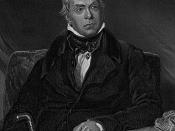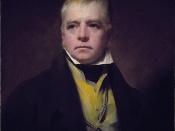In this case, it concerns misrepresentation. A party to a contract who wishes to show that he was induced to enter into the contract by a misrepresentation must prove one of the following:
(1)that the statement which he claims he relied on, was a statement of fact, not an expression of opinion or a statement of law
(2)that the statement was made before, or at the time, the contract was entered into
(3)that the statement was made to induce him to enter into the contract
(4)that hem in fact, relied on the statement, although there may be other factors on which he also relied, such as price or availability
(5)that the statement was untrue.
After that, discriminate which kinds of misrepresentation:
(1)fraudulent misrepresentation
(2)negligent misrepresentation
(3)innocent misrepresentation
Fraudulent misrepresentation, that misrepresentor knows that what he said id false, he is reckless as to what he has said, he does not care what he has said is true or false.
Case: Derry v Peek (1889)
Negligent misrepresentation that misrepresentor has no reasonable grounds to believe what he said is true, he has liable for damages. Case: Smith v Land ç House Property Corporation.
Innocent misrepresentation that misrepresentor has reasonable grounds to believe what he said is true, so that he has not liable for damages.
In this case, McMoney has made a misrepresentation to A1. He was not accurate to describe a work as an unpublished manuscript of Walter Scott is not the same as "the" Walter Scott. So that McMoney make a fraudulent misrepresentation or negligent misrepresentation to A1. A1 may rescind the contract and may also sue for damages from McMoney, when Bob sue A1.
Nowadays, Bob discovers that author is not "the" Walter Scott, he wants to sue A1. In this moment, A1 is believed that it...


